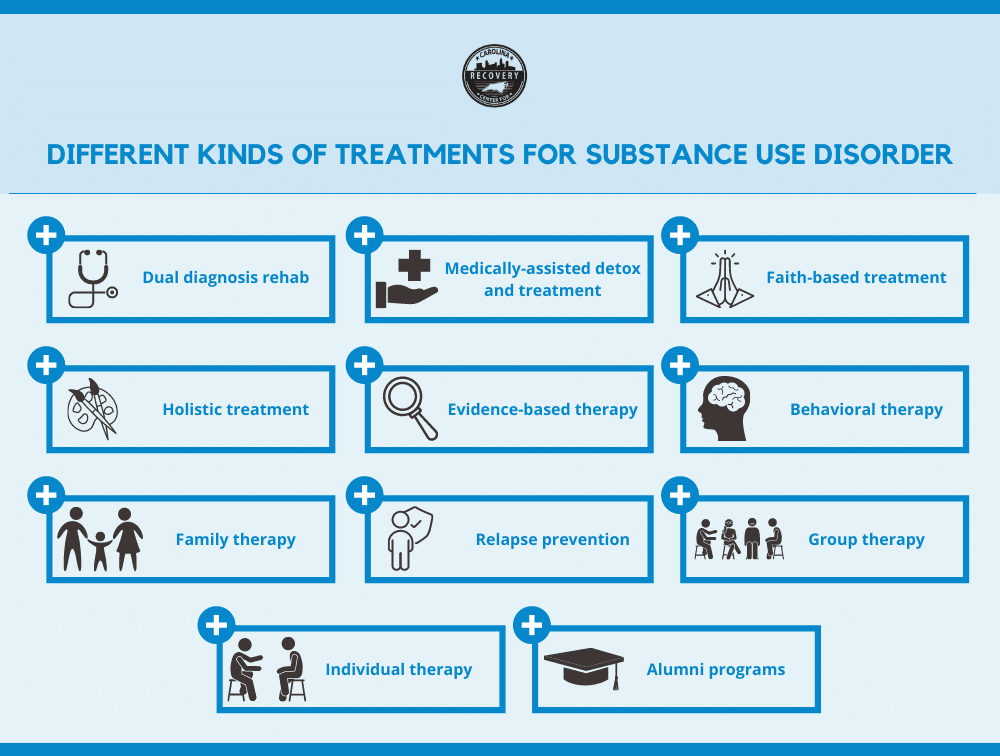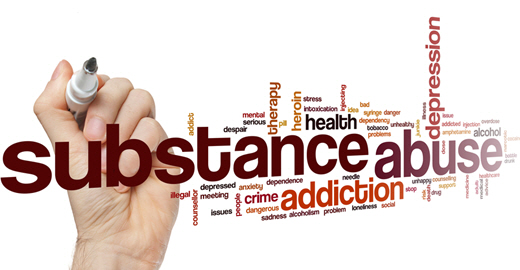Comprehensive Guide to Substance Abuse Treatment: Comprehending, Strategies, and Lasting Healing
Substance Abuse refers to the harmful or hazardous use copyright substances, consisting of alcohol and illicit drugs. It is not just an issue of willpower or inadequate decision-making-- it's a complicated problem affected by organic, mental, and social factors. Individuals struggling with drug abuse often experience compulsive drug-seeking habits regardless of adverse repercussions in their personal, expert, and social lives. Gradually, these substances can modify brain function, harm judgment, and produce physical and emotional dependence. Recognizing the nature important Abuse is the initial step toward addressing it efficiently.
The root causes of drug abuse are complex. Genetics, psychological health and wellness conditions, ecological pressures, trauma, and direct exposure to substances at a very early age can all contribute to the development of addiction. It is typically interlinked with conditions such as clinical depression, stress and anxiety, or post-traumatic stress and anxiety condition (PTSD) For lots of people, medications and alcohol become coping devices-- tools to run away psychological pain or anxiety. However, this short-term relief swiftly gives method to long-term effects, as resistance builds and the individual requires even more of the Substance to attain the same impact.
Identifying the signs important Abuse early on can stop the problem from escalating. Common warning signs consist of adjustments in habits, disregard of responsibilities, withdrawal from enjoyed ones, financial troubles, and physical signs and symptoms such as weight reduction, fatigue, or inadequate health. When left without treatment, drug abuse can lead to extreme wellness difficulties, harmed connections, and even sudden death. As a result, early intervention and accessibility to therapy are essential for individuals fighting with dependency.
The Significance of Seeking Chemical Abuse Treatment
Looking for specialist treatment for drug abuse is just one of one of the most vital decisions an individual can create their health and wellness and future - substance abuse treatment Morris County. Addiction is not something that can be conquered by self-control alone-- it needs structured intervention, assistance, and regular support. Treatment programs are created to deal with both the physical reliance and the underlying psychological or psychological problems that drive addicting actions. Without therapy, the cycle of relapse and self-destruction usually proceeds, putting the individual's life and well-being at danger
The importance of expert therapy hinges on its capacity to supply a controlled and safe setting for recovery. Throughout detoxing, medical specialists help people manage withdrawal signs that can be uncomfortable and potentially dangerous. After detox, treatment and therapy sessions permit individuals to confront the origin of their dependency, create dealing skills, and reconstruct their sense of self-regard. Treatment additionally assists re-establish healthy and balanced regimens, structure, and liability-- every one of which are essential for long-lasting recuperation.
Beyond the physical and emotional aspects, drug abuse therapy plays a significant role in recovering relationships and social functioning. Addiction commonly leads to broken depend on, seclusion, and stressed family members characteristics. Via household therapy and team sessions, people can restore communication and reconnect with loved ones. By including household participants in the recovery process, treatment programs enhance the support network needed for keeping sobriety. Fundamentally, looking for therapy is not practically giving up medicines or alcohol-- it has to do with reclaiming one's life and creating a foundation for a healthier, more fulfilling future.
Kinds Of Drug Abuse Treatment Programs
There is no one-size-fits-all approach to dealing with dependency. Each individual's trip is special, and so are their therapy requires. Substance Abuse therapy programs can be categorized right into a number of types, varying from inpatient rehab to outpatient counseling and all natural care. The selection of therapy depends upon elements such as the extent of dependency, the presence of co-occurring psychological health problems, and the individual's way of living and support system.
Inpatient or Residential Therapy supplies a very structured setting where clients live in a therapy center for a details period, generally between 30 and 90 days. This kind of program offers continuous medical supervision and extensive therapy sessions. It's excellent for individuals with extreme addictions or those that have relapsed multiple times. Inpatient care eliminates the individual from everyday triggers and temptations, permitting them to focus exclusively on recuperation. Therapies may consist of cognitive-behavioral therapy (CBT), dialectical habits treatment (DBT), and team counseling, all targeted at assisting people understand and manage their dependency.
Outpatient Therapy Programs offer more versatility, permitting individuals to continue with their everyday obligations while participating in set up treatment sessions. This method is often suitable for people with moderate to modest dependencies or as a step-down stage after finishing inpatient rehabilitation. Outpatient programs emphasize responsibility and lasting regression avoidance strategies. They may include individual counseling, medication-assisted treatment (MAT), and support system such as Narcotics Anonymous (NA) or Alcoholics Anonymous (AA)
In addition to these, alternative and all natural therapies are ending up being significantly prominent. These programs deal with the mind, spirit, and body connection by incorporating practices such as yoga, reflection, art therapy, and nutritional therapy. Many centers additionally use dual-diagnosis therapy for those taking care of both addiction and mental wellness problems. This detailed technique guarantees that the person receives versatile care that advertises recovery on several levels.
The Advantages of Substance Abuse Treatment
The advantages of going through Substance Abuse therapy prolong far past staying away from medications or alcohol. Among one of the most immediate benefits is enhanced physical health. Long-term chemical abuse takes a toll on the body, impacting vital body organs such as the brain, heart, and liver. Via cleansing and medical treatment, the body begins to fix itself, resulting in far better energy degrees, enhanced rest, and a redirected here stronger body immune system. Nutrition and health and fitness programs within rehab facilities better enhance physical healing.
Mental and psychological health advantages are equally considerable. Addiction commonly masks underlying emotional issues that need to be addressed. Throughout treatment, individuals get to qualified therapists and therapists that help them navigate sensations of embarassment, trauma, or sense of guilt. By establishing psychological recognition and resilience, individuals discover much healthier means to handle tension and activates. Cognitive-behavioral treatment (CBT) and various other evidence-based strategies empower individuals to alter adverse idea patterns that add to relapse.

Evidence-Based Approaches in Modern Addiction Treatment
Today's Substance Abuse treatment techniques are grounded in scientific research and medical method. Evidence-based therapies make certain that people obtain treatments confirmed to be reliable. Among one of the most extensively made use of approaches is Cognitive-Behavioral Treatment (CBT), which aids people recognize and transform believed patterns that result in Substance use. By understanding the connection between habits, emotions, and thoughts, people can find out to cope with triggers in healthier ways - substance abuse treatment Morris County. CBT is frequently combined This Site with various other treatments to attend to co-occurring disorders such as depression or anxiousness
One more effective strategy is Medication-Assisted Therapy (MAT), particularly for opioid and alcoholism. MAT uses FDA-approved drugs such as buprenorphine, naltrexone, or methadone to decrease desires and withdrawal signs and symptoms. When combined with therapy and behavior modification, MAT significantly boosts treatment retention and reduces regression rates. It permits patients to maintain their lives while concentrating on mental recuperation and reconstructing partnerships.
Group and family members therapy are also indispensable parts of evidence-based therapy. Team sessions produce a room for people to share their stories and obtain insights from others in healing. Family members therapy, on the other hand, addresses the relational damages brought on by addiction. It assists enjoyed ones understand the nature of the condition and equips them with tools to give support while establishing healthy and balanced boundaries. These collective restorative approaches strengthen the recovery process and advertise lasting recovery.
Building a Life After Treatment: Sustaining Long-Term Healing
Healing does not finish after finishing a treatment program-- it's a long-lasting trip that calls for try this commitment, discipline, and continuous assistance. Transitioning back to daily life can be tough, as people are confronted with triggers, stressors, and responsibilities that can evaluate their soberness. This is where aftercare programs play an important function. Aftercare may consist of recurring therapy, peer support system, sober living plans, and regression avoidance planning. The goal is to assist individuals preserve the development they've made and prevent slipping back into old patterns.
Establishing a new lifestyle centered on health and purpose is vital for long-lasting success. Lots of individuals discover satisfaction by going after hobbies, fitness routines, education and learning, or volunteer job. Constructing an organized everyday routine aids protect against dullness-- a typical trigger for relapse. Reconnecting with family, repairing partnerships, and bordering oneself with positive impacts better enhances a healthy lifestyle. It's also crucial to identify that obstacles can occur, but they do not define the person's journey. What matters most is the readiness to look for help and proceed relocating forward.
Ultimately, continual healing has to do with transformation-- literally, psychologically, and spiritually. It entails redefining one's identity and searching for significance past addiction. People who commit to long-lasting recovery often come to be advocates, advisors, or support numbers for others having problem with chemical abuse. Their stories of strength act as effective pointers that recovery is possible. With the ideal treatment, support, and frame of mind, anyone can get rid of dependency and build a meeting, substance-free life.
Conclusion: A Path Towards Recovery and Hope

Seeking expert therapy for Substance Abuse is one of the most important choices a person can make for their health and future. Past the physical and psychological elements, Substance Abuse therapy plays a considerable function in recovering relationships and social functioning. Substance Abuse treatment programs can be categorized right into numerous types, varying from inpatient rehabilitation to outpatient counseling and alternative treatment. Inpatient or Residential Therapy provides a highly structured atmosphere where people live in a treatment center for a specific duration, typically between 30 and 90 days. The benefits of undergoing Substance Abuse therapy prolong much past staying away from drugs or alcohol.